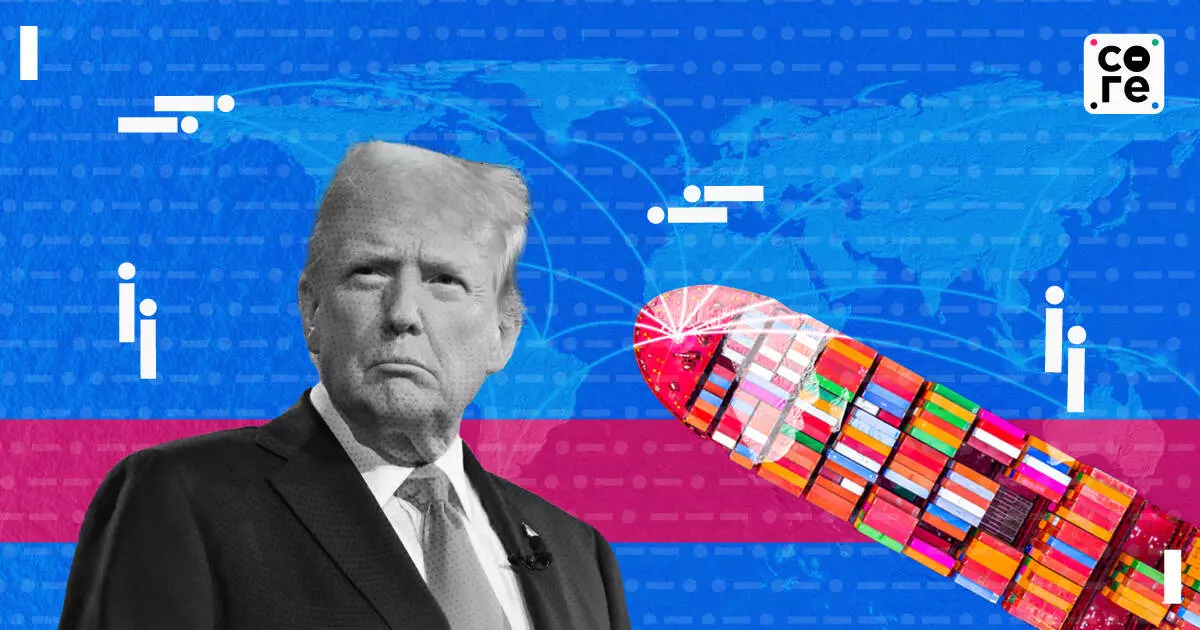
With Trump Tariffs Back, India And The World Must Rethink Trade For Good
India's UK trade deal offers hope, but escalating global tariff threats and Trump’s unpredictable moves signal long-term uncertainty for exporters and trade-dependent businesses.

India and the UK finally signed a long-delayed and widely debated free trade agreement (FTA) on 6 May.
The agreement will make around 99% of Indian exports to the UK tariff-free, even as India will cut tariffs on select British imports. Think: whiskey.
An apparel manufacturer who exports a substantial portion of his products to the UK told me yesterday that he expects it will take anywhere between 12 to 15 months for the agreement to actually take effect. At that point, he expects to ship goods into the UK at zero duty, compared to the average 11% he pays now.
So, we are still some distance from impact.
Free Trade Promises Amidst Political Uncertainty
This is typically how long tariff agreements take to be implemented, given the sheer number of items involved and the complexities surrounding them.
Take, for instance, India’s own tariff negotiations with the United States—supposedly on a fast track, but for entirely expected reasons, taking their time.
Mostly because India is not putting the entire domestic market on a zero-tariff platter. It has never done that. It is unlikely to do so now.
Except in a few cases, of course. Think whiskey again.
Then came Donald Trump’s latest warning to Apple: they cannot manufacture iPhones in India. If they do, those imports into the US will be hit with a 25% tariff.
This is almost a company-specific threat, rather than a country-level one. Presumably, Apple will have some company in this latest round of not-so-friendly fire.
Europe Also Feels The Heat
Over the weekend, Trump also announced plans to impose a 50% tariff on imports from the European Union—more than double his earlier threat of 20%.
His reasoning?
“Our discussions with them are going nowhere,” he said. The bloc is “very difficult to deal with.”
This could kick in as early as next weekend.
The Economist reported that Trump’s statement came as a particular blow to European officials, who had been cautiously optimistic. According to an internal memo dated May 14, seen by The Economist, they believed the threat was receding, since America was beginning to feel the economic consequences of the president’s earlier tariff rampage.
Who’s to blame here?
Clearly, the EU officials—for deluding themselves into thinking the problem was about to vanish.
It was vanishing only because they had shut their eyes.
As has been the case with governments everywhere.
India believed a deal was within reach—until Trump issued a highly specific threat to Apple, warning it against manufacturing in India.
Why, one wonders, is India being singled out so specifically? After all, it is not seen as an antagonistic power like China, at least from the American perspective.
The events of the past week have made one thing clear: trade uncertainty is here to stay.
This is not the boy who cried wolf. This is the boy announcing the arrival of it.
Businesses in India must now accept that they cannot bank on hope—or on Trump’s memory—for last-minute deals.
Even a deal that’s officially signed may never materialise. And even if it does, like the India–UK FTA, it will take a year or more to go into effect.
Tariff Uncertainty Is The Constant
A recent Allianz survey of 4,500 businesses—including those in China—found that most exporters are already scouting for new markets, even in scenarios where tariffs might ease.
That doesn’t mean everyone has stopped hoping.
But across the world, there is a growing realisation that choices are limited, and time is even more so.
And US trade uncertainty is likely to persist for several years.
The Indian apparel exporter told me that some of his biggest competitors in the UK market are Turkish manufacturers.
For Indian firms like his to level the playing field, the UK tariff deal must be implemented swiftly.
For now, businesses must accept that last week was the final straw. They need to start thinking in terms of permanent strategy shifts, not ad hoc measures aimed at simply riding this out.
India's UK trade deal offers hope, but escalating global tariff threats and Trump’s unpredictable moves signal long-term uncertainty for exporters and trade-dependent businesses.
Zinal Dedhia is a special correspondent covering India’s aviation, logistics, shipping, and e-commerce sectors. She holds a master’s degree from Nottingham Trent University, UK. Outside the newsroom, she loves exploring new places and experimenting in the kitchen.

